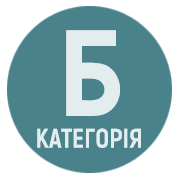USE OF FOREIGN EXPERIENCE IN THE SPHERE OF WASTE-FREE AGRICULTURAL PRODUCTION
DOI:
https://doi.org/10.32689/2523-4536/73-2Keywords:
foreign experience, waste-free agricultural production, zero waste, waste managementAbstract
More than 400 cities and municipalities in Europe and a growing number of municipalities worldwide have been identified as implementing strategies as zero-waste cities. They aim to stop the flow of waste, not by incinerating or burying waste, but by developing processes and systems that do not create any waste. The fight against plastic waste starts from the beginning: single-use products should be abolished and alternative distribution systems should be promoted. But it's also about sparking new interest in a zero-waste lifestyle. A movement called "Zero Waste" has sprung up that tries to fight litter where it starts. Products, packaging and materials are produced, consumed and reused responsibly. No garbage is burned. Polluting substances do not enter the soil, water and air. The origins of the waste-free movement lie at the municipal level. Cities already used this term in the field of waste management in the early 2000s. Such American cities as San Francisco, New York and Seattle are pioneers. The declared goal of these cities is to reduce residual waste. They start with several points, as can already be seen from the definition of the "Zero Waste International Alliance" 2019. Zero waste is the conservation of all resources through responsible production, consumption, reuse and recycling of products, packaging and materials without incineration and emissions to soil, water or air that are harmful to the environment or health. The economy is encouraged to use resource-saving production (precycling) and circular economy (recycling) is stimulated. However, citizen participation is considered the most important tool. Otherwise, it is impossible to achieve the avoidance of waste generation, the purposeful separation of waste and the conservation of resources. In addition to reducing the total amount of waste, the reduction of residual waste plays a key role in the Zero Waste concept, as it is thermally recycled. By better separating the types of waste that are often disposed of together with residues, valuable materials can be preserved and thus reused. Setting zero waste as a municipal target is still not very common in Germany. In this country, waste is often seen as an energy resource. Numerous incinerators produce cheap energy, but only if enough waste can be burned. This represents a contradiction in approaches to waste prevention. However, some cities are now taking a different approach. In 2021, Kiel became the first zero-waste city to be certified by the Zero-Waste-Cities-Europe association. With its zero-waste concept published in 2021, Munich wants to reduce household waste per capita by 15 percent by 2035. Regensburg is currently developing a zero-waste production strategy. So, something is happening in Germany too. But it will not work in this country without willing citizens. It is worth starting – for the climate and the environment and one's own quality of life.
References
Вергун О.М., Іванюта С.П. Проблеми державного регулювання у сфері поводження з відходами та шляхи їх вирішення. Аналітична записка. URL: http://www.niss.gov.ua/articles/1386/
Технології поводження з відходами харчових виробництв: навч. посіб. для ВНЗ / Г.В. Крусір, Р.І. Шевченко, Я.П. Русєва, І.П. Кондратенко, І.П. Крайнов; Одес. нац. акад. харч. технологій. Одеса : Астропринт, 2014. 400 с.
Паулі Г. Синя економіка: 10 років. 100 інновацій. 100 мільйонів робочих місць: доп. Рим. Клубу / Ред. Л. Ярошенко; пер. А. Побережна; Фонд «Богдана Гаврилишина», Фонд «Скорочення ризиків». Київ, 2012. 353 с.
Verhun, O.M. and Ivaniuta, S.P. (2013). "Problems of state regulation in the field of waste management and ways of their solution. Analytical note", available at: http://www.niss.gov.ua/articles/1386/
Krusir, H.V., Shevchenko, R.I., Rusieva, Ya.P., Kondratenko, I.P. and Krainov, I.P. (2014). Tekhnolohii povodzhennia z vidkhodamy kharchovykh vyrobnytstv: navch. posib. dlia VNZ [Technologies of waste management of food production: a textbook for universities], Astroprynt, Odessa, Ukraine.
Pauli, G. (2012). Synia ekonomika: 10 rokiv. 100 innovatsii. 100 milioniv robochykh mists: dopovid Rymskomu Klubu [Blue Economy 10 Years, 100 Innovations, 100 Million Jobs: report to the Rome Club], Fond "Bohdana Havrylyshyna" & Fond "Skorochenia ryzykiv", Kyiv, Ukraine.









